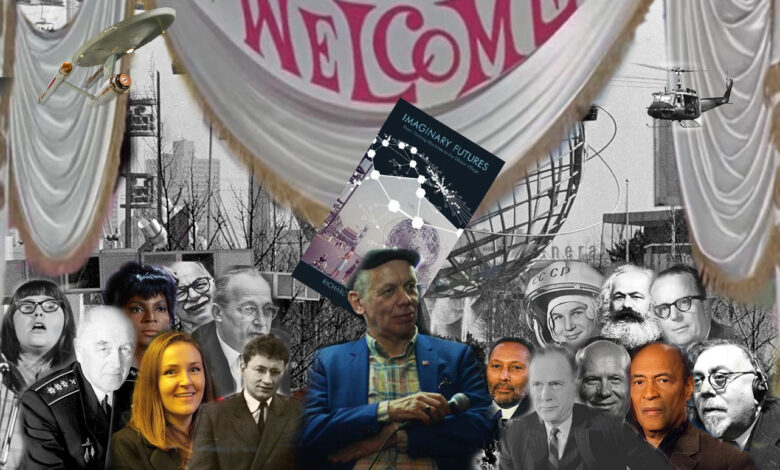
The Return of the State
By Wael Elazab (Cybersalon)
It’s beyond austere; nations’ rationing, globally isolating and in need of reboot, we ask if new technology is forcing into place an authoritarian Big State.
Bradley Tuck of Brighton-based idea engine, Exploding Appendix, chaired the debate, with Paolo Gerbaudo, King’s College, London, and dr Richard Barbrook, Westminster University, Politics Department.
Sociologist, political theorist and renowned writer, Gerbaudo, recently authored, The Great Recoil: Politics after Popularism and Pandemic; in which, among many things, he discusses an emboldened movement that favours the business bottom-line buckskins, over work-life balance Bolshevism.
Barbrook is a social sciences and humanities academic and is author of many well-known books on matters regarding broadcast, print and internet regulation, such as 1995’s Media Freedom and The Imaginary Futures. He holds a doctorate in Politics & Government and co-founded the first-gen Hypermedia Studies MA at Westminster University.
We’ve always been taught to rely
Since the turn to this century, we’ve seen The State step in, and step in it, up to its neck. The automotive industry in the US, Europe, Canada and Asia, as well as German steel, Japan Airlines, global finance and more, all saved from the 2007/08 financial meltdown. “The State [had to] create the market,” says Gerbaudo, “[It] Underpin laws, stabilise currencies and not since the Romans has it been done so successfully.” Affirming, “[The State] intervened.”
And we accepted it during lockdown, willed and granted en masse, continuing to submit to it. Another area, climate change; how many melting millimetres of ice shelf, ice cap and glacier would there be without the (incremental, it has to be said) legislative changes and state-prescribed messages of the combustion engine? Sections of the ruling classes, points out Gerbaudo, “[Have now been] convinced that central planning [is a must], and establishing national climate goals – that by 2030, no petrol cars – this goes completely against the liberal mindset.”
Empty supermarket shelves no longer warrant a Facebook post, and nine meals away from revolution, no longer a soundbite; unwittingly we impune the powers that be, to track movement, trace steps, restrict travel and surveil the populous. Barbrook noting, “What was shocking to many people, was that travelling and attending conferences was being threatened – even for the leftists that were on good passports,” Gerbaudo cites British sociologist and Marxist academic Ralph Milliband, adding, “More than ever, we live in the shadow of the state.”
Sleep now, in the fire
For the reach, equivalent messaging and in terms of authoritarian ideals, influencers and global actors have tremendous sway; of the latter, Gerbaudo says, “The horrors of state-sanctioned technology permeate all areas of social life.” Particularly, he asserts, “Surveillance.” And continues, “Even white people [are now] afraid of The State, but they [have a position] of privilege.” Barbrook adding, “The purpose of The State is to support the elite in whatever they want to do,” and using the Communist Manifesto slogan of Marx’s view, he adds, “[The capitalist state serves as] the managing committee of the bourgeoisie.”
From the perspective of writings by Sphinozistic-Marxist Antonio Negri; being at the bottom of the capital actor’s 1960s and ‘70s sh#t-pile, meant you revolted upwardly, as theorised Autonomist-Marxism prescribes, from the bottom. It is Negri’s work Barbrook, refers, “Money as command,” keeps you at the bottom, keeps you working, as it, “[Keeps you] one pay-check away from destitution.” And keeping the population working, on paper, is an improvement, which Gerbaudo brings up in his latest book. Describing the politics of control, and highlighting whether technological innovation, is, “to attain higher levels of productivity, and increased returns on investment,” in keeping with capitalism’s definition of optimisation.
That accelerationism, of better equals cheaper, quicker, faster, faster production of more, more, more … tangles with tech; a scientific means, to commercial ends. With binary-coated glasses, Marshall McLuhen told of the global village, borne of digital; but, as Barbrook speaks and writes, in The Californian Ideology, the village is a marketplace, a global one. “There’s a vision of techno determinism,” states Barbrook, of McLuhnisim.
Automation is/not liberation
All that’s left, is to Shenzhen our future. Striking contrast to the American slogan, “What’s good for the market, is good for you,” yet also striking the same desirable outcomes, China has better telecommunications, high-speed trains, pandemic awareness, virus tracking as well as a better internet of everything.
“Yet, 60 percent of [the Chinese] economy is controlled by the state,” emphasises Gerbaudo, continuing, “The ruling [Communist Party of China] blocked internet, blocked American platforms, created a digital economy with their own economy, and they now have their own operating system and can go, and conquer the world.”
Passive components on Europe’s circuit, and the burnt-out UK, “Slaves to the USA empire,” says Barbrook, and Gerbaudo replies, “Are we cheering for Nato or China? Do we have to choose? Or can we mobilise people, to find an alternative?”
Thank you to Bradley for hosting the debate in Brighton, we will be back!




